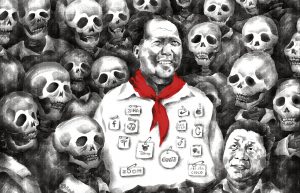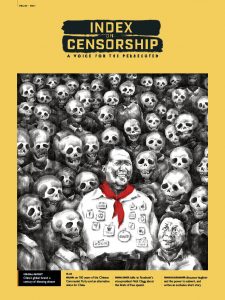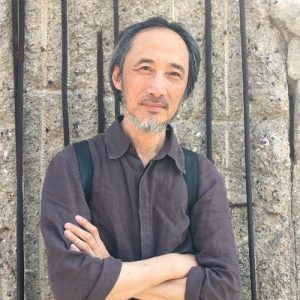Index relies entirely on the support of donors and readers to do its work.
Help us keep amplifying censored voices today.
The United Kingdom is in a period of national mourning, marking the passing of our head of state, Her Majesty Queen Elizabeth II. Global media has been transfixed, reporting on the minutiae of every aspect of the ascension of the new monarch and the commemoration of our former head of state. While the pageantry has been consuming, the constitutional process addictive (yes I am an addict) and the public grief tangible – the traditions and formalities have also highlighted challenges in British and global society – especially with regards to freedom of expression.
We have witnessed people being arrested for protesting against the monarchy. While the protests could be considered distasteful – I certainly think they are – that doesn’t mean that they are illegal and that the police should move against them. Public protest is a legitimate campaigning tool and is protected in British law. As ever, no one has the right not to be offended. And protest is, by its very nature, disruptive, challenging and typically at odds with the status quo. It is therefore all the more important that the right to peacefully protest is protected.
While I was appalled to see the arrests, I have been heartened in recent days at the almost universal condemnation of the actions of the police and the statements of support for freedom of expression and protest in the UK, from across the political system.
What this chapter has confirmed is that democracies, great and small, need to be constantly vigilant against threats to our core human rights which can so easily be undermined. This week our right to freedom of expression and the right to protest was threatened and the immediate response was a universal defence. Something we should cherish and celebrate because it won’t be long before we need to utilise our collective rights to free speech – again.
Which brings me onto the need to protest and what that can look like, even on the bleakest of days. On Monday, the largest state funeral of my lifetime is being held in London. Over 2,000 dignitaries are expected to attend the funeral of Her Majesty, Queen Elizabeth II, in Westminster Abbey. The heads of state of Russia, Belarus, Afghanistan, Syria, Venezuela and Myanmar were not invited given current diplomatic “tensions”. While I completely welcome their exclusion from the global club of acceptability, it does highlight who was deemed acceptable to invite.
Representatives from China, Brazil, Saudi Arabia, Turkey, Iran, North Korea and Sri Lanka will all be in attendance, all of whom have shown a complete disregard for some of the core human rights that so many of us hold dear. Can you imagine the conversation between Bolsonaro and Erdogan? Or the ambassador to Iran and the vice president of China?
While I truly believe that no one should picket a funeral – the very idea is abhorrent to me – that doesn’t mean that there are no other ways of protesting against the actions of repressive regimes and their leadership, who will be in the UK in the coming days. In fact the British Parliament has shown us the way – by banning representatives of the Chinese Communist Party from attending the lying in state of Her Majesty – as a protest at the sanctions currently imposed on British parliamentarians for their exposure of the acts of genocide happening against the Uyghur population in Xinjiang province. This was absolutely the right thing to do and I applaud the Speaker of the House of Commons, Rt Hon Lindsay Hoyle MP, for taking such a stance.
Effective protest needs to be imaginative, relevant and take people with you – highlighting the core values that we share and why others are a threat to them. It can be private or public. It can tell a story or mark a moment. But ultimately successful protests can lead to real change. Even if it takes decades. Which is why we will defend, cherish and promote the right to protest and the right to freedom of expression in every corner of the planet, as a real vehicle for delivering progressive change.
Index on Censorship has expressed its concern over the unwarranted prison sentence of 34 years handed out to Saudi national Salma al-Shehab, who was a student at the University of Leeds in the UK at the time of her alleged crimes – tweeting in support of prisoners of conscience and retweeting statements of support of the Saudi activist Loujain Alhathloul.
Al-Shehab, who was studying for a PhD in oral and human health, was arrested on 15 January 2021 after going back to Saudi Arabia to spend the holiday with her husband and two children, Adam and Noah (right). It is understood she was planning to return to the UK with her family.
She was questioned for almost a year before being charged by the Specialised Criminal Court under various parts of the country’s Counter-Terrorism Law and the Anti-Cybercrime Law for “supporting those seeking to disrupt public order, undermining the safety of the general public and stability of the state, and publishing false and tendentious rumours on Twitter”, according to the Gulf Centre for Human Rights (GC4HR).
Al-Shehab was initially handed a six-year sentence last year but on appeal this was increased to 34 years, including a discretionary five years added by the judge. She has also been slapped with a travel ban for a further 34 years following her sentence.
The GC4HR says the sentence is the longest ever given to a peaceful activist.
Jemimah Steinfeld, editor-in-chief of Index on Censorship, said: “Index condemns the 34-year sentence passed on Salma Al-Shehab and calls for her immediate and unconditional release. The decision of the Saudi authorities to charge Salma for merely retweeting other people’s tweets while at university in the UK is yet another example of the growing trend of authoritarian governments to apply their draconian laws beyond their own borders.”
She added: “We fear we are sleep-walking into a situation where no one is safe from any law, no matter where in the world they are, and we call on the international community to unite in their condemnation of her sentencing. Using your voice to dissent should not be a crime, nor should supporting others who do.”
One of Al-Shehab’s supposed crimes was to tweet about prisoners of conscience and to retweet tweets relating to the Saudi women’s rights defender Loujain Alhathloul, one of six jailed people that Index supported in our 2020 end of year campaign. Alhathloul was eventually released in 2021.
In a pinned tweet, published on 30 August 2019, al-Shehab said, “I reject injustice, and support the oppressed…. Freedom for prisoners of conscience and for all the oppressed in the world.”
Loujain’s sister Lina Alhathloul, head of monitoring and communications for ALQST, an independent NGO established in 2014 by Saudi Arabian human rights defender Yahya Assiri, said: “This appalling sentence makes a mockery of the Saudi authorities’ claims of reform for women and of the legal system, and shows that they remain hellbent on harshly punishing anyone who expresses their opinions freely. Saudi activists warned Western leaders that giving legitimacy to the crown prince would pave the way for more abuses, which is unfortunately what we are witnessing now.”
The organisation said it feared al-Shehab’s sentence “may be the start of a new trend that the Saudi authorities will follow in the days ahead, as a mechanism for punishing all who criticise either their domestic or foreign policies”.
It added: “This is of particular concern now that normal diplomatic relations have been restored between Crown Prince Mohammed bin Salman and other world leaders, after having been strained since the murder of Saudi journalist Jamal Khashoggi on the crown prince’s orders.
[vc_row][vc_column][vc_single_image image=”116981″ img_size=”full” add_caption=”yes”][vc_column_text]Unless you are a classical Greek scholar or a student of the French philosopher Michel Foucault, it is unlikely that you will have heard of parrhesia. It is an Ancient Greek term meaning “to speak freely”. Its use implied not only the freedom to speak without fear but also an obligation to do so for the common good, even at great personal risk to the speaker. In common parlance, it is the virtue at the heart of whistleblowing.
Whistleblowing is not new. In Ancient Greece, Euripedes used it in his play The Bacchae as a medium to remind and instruct the (male) citizens of Athenian society in beneficial social practice. It reappeared in the Roman Empire in the form of delatores, and in early mediaeval England under qui tam practices, which existed in law until 1951.
It crossed the Atlantic to the USA to be encapsulated in the False Claims Act, otherwise known as the Lincoln Law, which combatted procurement fraud during the American Civil War; and it is the genetic antecedent to the current Public Interest Disclosure Act in the UK, and the Sarbanes-Oxley Act and the Dodd-Frank Act in the USA.
Despite its long ancestral line, there is a basic problem with whistleblowing. It demands a competition of one’s loyalties: a fundamental contest between loyalty to values and loyalty to the organisation. Whistleblowing asks the individual to consider between exposing what is wrong and an implied debt of allegiance to country, regiment, company, colleagues, friends and even family.
Whistleblowing also requires raw courage; it asks its exponents to place themselves in great danger.
Whistleblowing asks that the powerful recognise that they need the knowledge that only the vulnerable can give.
In Ancient Athens, the parrhesiastic contract not only offered protection but imposed sanctions against those responsible for the wrongdoing and those responsible for reprisals on the parrhesiastes – the whistleblower. The powerful offered not only freedom to speak openly but also protection for doing so. It is this principle that the Athenians understood
I approach the issue in part from personal experience. I am the whistleblower behind the recent Airbus scandal that started with revealing corruption in government-to-government defence contracts in Saudi Arabia. It has just resulted in a £30million fine for GPT, the UK subsidiary, in addition to being one of the triggers to the deferred prosecution agreements between Airbus Group and the USA, the UK and France, penalties of more than €3.6 billion, and the removal of most of the group’s senior management.
I have found that if we really want to change things for the better then we must find a way to better protect whistleblowers. So I have founded a charity called Parrhesia Inc, which brings together experts in whistleblowing research and policy from around the world in order to focus on the practice, protection and human rights of whistleblowers, by co-ordinating, commissioning and collating research to provide the evidence needed by policymakers to form and reform whistleblowing legislation.
We intend to sow the seeds of the parrhesiastic contract into legislation and all parts of modern society.[/vc_column_text][/vc_column][/vc_row][vc_row][vc_column][three_column_post title=”You may also want to read” category_id=”581″][/vc_column][/vc_row]

Illustration: Badiucao
Index looks back on 100 years of the Chinese Communist Party and how their censorship laws continue to shape the lives of people around the world and threaten their right to free speech. Inside this edition are articles by exiled writer Ma Jian and an interview with Facebook’s vice-president for global affairs, former UK deputy Prime minister Nick Clegg; as well as an exclusive short story from acclaimed writer Shalom Auslander.
Acting editor Martin Bright said: “I am delighted to introduce the latest edition of Index which marks the 100th anniversary of the Chinese Communist Party.”
“This year also marks the 50th anniversary of the magazine and I am proud that we are continuing the founders’ legacy of opposition to totalitarianism.”
“In this Spring edition of Index we are particularly pleased to publish an exclusive essay by the celebrated Chinese writer Ma Jian, who suggests that an alternative tradition of tolerance and freedom is still possible.”
 A century of silencing dissent by Martin Bright: We look at 100 years of the Chinese Communist Party and the methods of control that it has adapted to stifle free expression and spread its ideas throughout the world
A century of silencing dissent by Martin Bright: We look at 100 years of the Chinese Communist Party and the methods of control that it has adapted to stifle free expression and spread its ideas throughout the world
The Index: Free expression round the world today: the inspiring voices, the people who have been imprisoned and the trends, legislation and technology which are causing concern
Fighting back against the menace of Slapps by Jessica Ní Mhainín: Governments continue to threaten journalists with vexatious law suits to stop critical reporting
Friendless Facebook by Sarah Sands: An interview with Facebook vice-president Nick Clegg about being a British liberal at the heart of the US tech giant
Standing up to a global giant by Steven Donziger: A lawyer who has gone head to head with the oil industry since 1993 at great personal cost tells his story
Fear and loathing in Belarus by Yahuen Merkis and Larysa Shchryakova: The crackdown on journalism has continued with arrests. Read the testimony of two reporters
Killed by the truth by Bilal Ahmad Pandow: Babar Qadri was one of Kashmir’s most strident voices, until he was gunned down in his garden
Cartoon by Ben Jennings: Arguments about the removal of statues cause a stir
The martial art of free speech by Ari Deller and Laura Janner-Klausner: The question of Cancel Culture continues to rage. Is it really a problem?

Ma Jian
Burning through censorship: Censorship-busting online organisation GreatFire celebrates its 10th anniversary
The party is your idol by Tianyu M. Fang: China’s propaganda is adapting to target young people
Past imperfect by Rachael Jolley: Four historians explain how the CCP shaped China and ask if globalisation will be its undoing
Turkey changes its tune by Kaya Genç: Uighur refugees living in Turkey find themselves victims of a change in foreign policy
The human face and the boot by Ma Jian: The acclaimed writer-in-exile reflects on 100 years of the CCP and its legacy of bloodshed
A moral hazard by Sally Gimson: Universities around the world and the CCP’s challenges to academic freedom
Director’s cuts by Chris Yeung: Hong Kong broadcaster RTHK has been squeezed by China’s tightening control
Beijing buys Africa’s silence by Issa Sikiti da Silva: Africa’s rich natural resources are being hoovered up by China
A new world order by Natasha Joseph: Journalist Azad Essa found when he wrote about China in Africa, his writing was silenced
A most unlikely ally by Stefan Pozzebon: Paraguay has long been an ally of Taiwan, but it’s paying an economic price
China’s artful dissident: A profile of our cover artist: the exiled cartoonist Badiucao.
Lies, damned lies and fake news by Nick Anstead: Fake news is rife, rampant and harmful. And we can only counter it by making sure that the truth is heard
Censorship? Hardly by Clive Priddle: Even the most controversial book usually finds a publisher after it has been turned down
A voice for the persecuted by Ruth Smeeth: As Index celebrates its 50 year anniversary, we note why free speech is still important

Collective ©ALEXANDER NANAU PRODUCTION
Don’t joke about Jesus by Shalom Auslander: An exclusive short story based on a joke by the acclaimed author of Mother for Dinner
Poet who haunts Ukraine by Steve Komarnyckyj: Vasyl Stus, the writer who remains a Ukrainian hero, 35 years after perishing in a Soviet gulag
The freedom of exile by Khaled Alesmael, Leah Cross: A young refugee Syrian writer on the love between Arab men
Forbidden love songs by Benjamin Lynch: Iran’s underground pop music scene upsets the regime
Reviews: Saudi Arabia’s murder of Jamal Khashoggi, USA Gymnastics and healthcare in Romania: we review three new documentaries
War of the airwaves by Ian Burrell: The Chinese government faces difficulties with its propaganda network CGTN